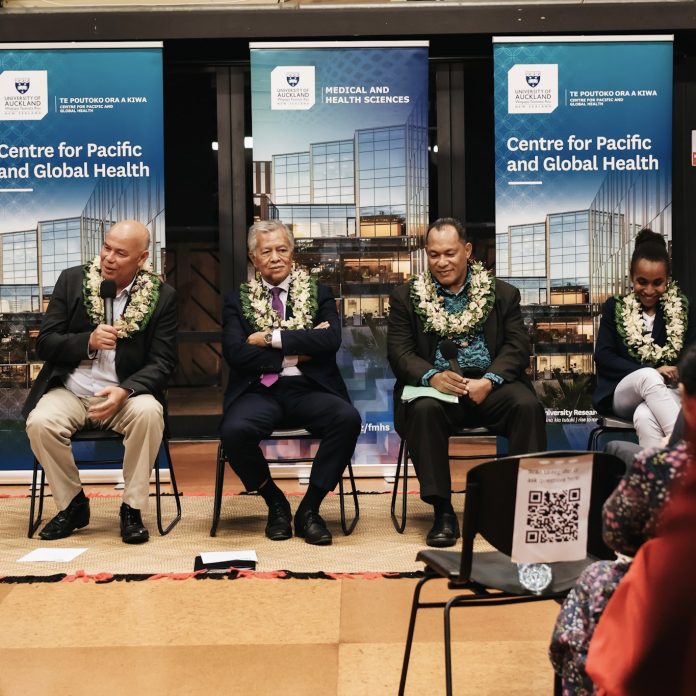The ‘Pacific Transnational Leaders Panel’ event brought together distinguished figures in the Pacific region to discuss the highlights and challenges of Pacific regionalism. Held at the University of Auckland, the event provided a platform for key speakers to share their insights and reflections on leadership in the Pacific region.
The panel of distinguished guests included Pasifika Medical Association’s (PMA) Board Director, Sir Collin Tukuitonga, Secretary General of the Pacific Islands Forum, Henry Puna, Former Director General of the Secretary of the Pacific Regional Environment program, Leota Kosi Latu, and Founding Member and current President of Pacific Island Students Fighting Climate Change, Cynthia Houniuhi.
Secretary General Henry Puna, in his address, shared his personal journey and reflections on Pacific regionalism. He drew inspiration from his upbringing, highlighting the values of discipline, hard work, compassion, and care instilled in him by his family.
“This is an opportunity to take a pause to see how far we have come, listen to what we have learnt, and to look forward to what lies ahead.”
Secretary GeneralPuna stressed the need for regional stability, peace, and prosperity, emphasising that partnerships should be genuine, based on friendship, mutual benefit, and a collective vision for sustainable results. Reflecting on his role as a regionalist, he acknowledged the challenges faced and the crucial role of strategic thinking, diplomatic skills, and decisive action.
“To lead a country is an honour. To lead a region of multiple independent self-governing countries and territories is a masterful art.”
Secretary General Puna highlighted a crucial approach, emphasising the importance of small Pacific Islands being “friend to all and enemy to none.” This signifies the necessity of collective strength for the future of the Pacific region.
During the panel discussion on the highlights and lowlights of Pacific regionalism, Sir Tukuitonga highlighted several successes, including the Treaty of Rarotonga in 1985, the establishment of the University of the South Pacific (USP), and the formation of the Secretariat of the Pacific Community (SPC). These initiatives have contributed significantly to the region’s development and addressed pressing issues.
Leota Kosi Latu mentioned the Paris Agreement in 2015 as a significant milestone in regionalism, emphasising the Pacific leaders’ involvement at the forum.
“For many years, leaders have been advocating for a just agreement that would look beyond the interests of big countries. Many of the Pacific leaders weren’t just giving speeches but they were involved in decisions and negotiations.”
The panel emphasised the importance of unity among small Pacific Islands, acting as a collective to enhance their bargaining power. They also highlighted the need for open and inclusive dialogue (Talanoa) to address any challenges effectively.
Concluding the event, Solistice Middleby, former Australian Diplomat to the Pacific, officially launched the report titled ‘Seeing like a regionalist: The dilemmas of inter-governmental co-operation in the Blue Pacific.’ This report explores both the hope and despair of Pacific regionalism, shedding light on the dilemmas faced in the pursuit of regional cooperation.
The Pacific Transnational Leaders Panel provided a platform for these distinguished individuals to share their reflections and calls for genuine partnerships and collective strength.
SOURCE: PMA/PACNEWS


















